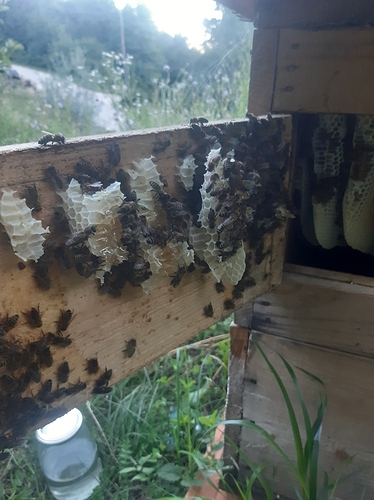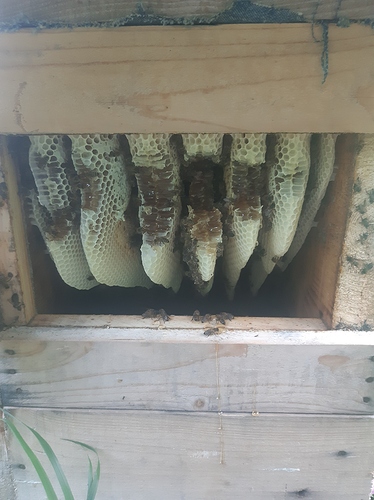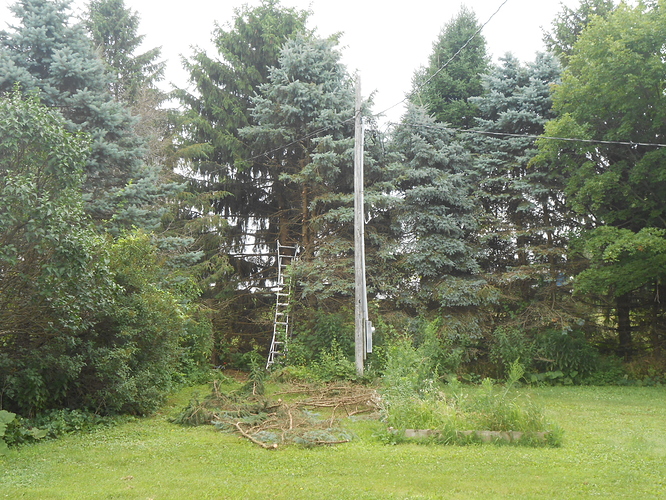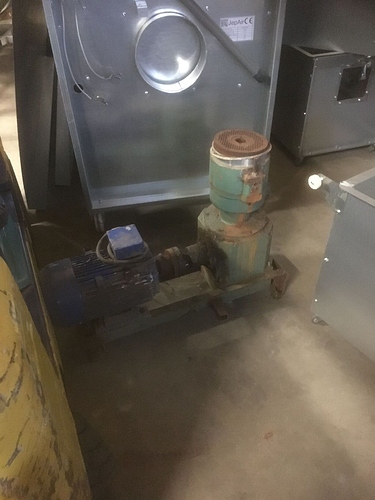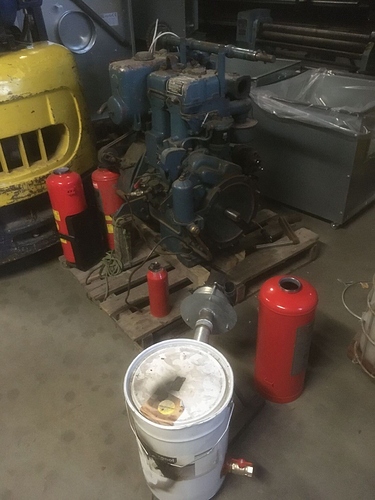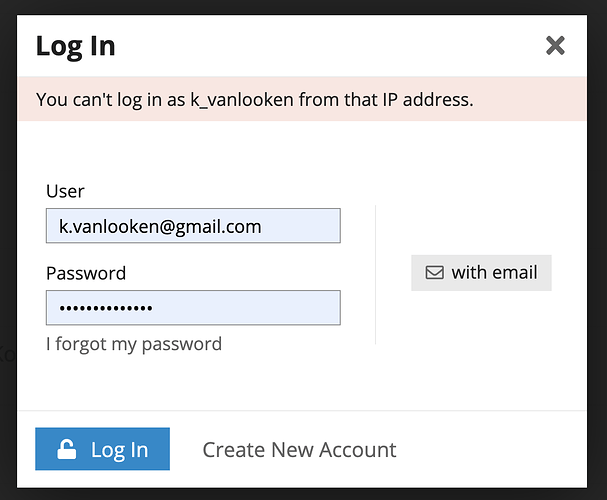Rural Development Innovation Group Achieves Multiple Successes During First Four Years, Looks Ahead
U.S. Endowment for Forestry and Communities, Greenville, SC
For IMMEDIATE RELEASE ( July 13, 2020 )
GREENVILLE, SC – The U.S. Endowment for Forestry and Communities (Endowment) is pleased to formally recognize the successful first phase of the Rural Development Innovation Group (RDIG), a voluntary collective of development practitioners, intermediates, and other organizations committed to advancing rural community and economic development. RDIG was initiated in 2016 to demonstrate successful and innovative rural economic development strategies, provide peer advice among organizations, and identify national trends and emerging opportunities to support sector-based strategies. The Endowment provided a grant in 2016 to launch RDIG, and over time those funds were matched with the LOR, Mary Reynolds Babcock, Northwest Area, Annie E. Casey, and Incourage Foundations, along with several other funders. RDIG convened for the first time in September 2016 at the invitation of three convening partners: Northern Forest Center, Aspen Institute Community Strategies Group, and the Endowment.
More than two-thirds of the nation’s 3,143 counties are rural, and so are the majority of incorporated places. Most of the 574 federally recognized tribes in the U.S. have a significant presence in the country’s rural regions. Ninety-seven percent of the United States’ landmass is rural, and one in five Americans lives in a rural area. Rural entrepreneurs start businesses at higher rates than their urban counterparts, and they have higher five-year business survival rates. These mostly small businesses play a particularly vital role in rural America, creating roughly two-thirds of new jobs and supporting the economic and social well-being of their communities.
“Our motivation for RDIG’s creation was the shared conviction that the innovation in rural economic and community development practice from around the nation must become better known, connected, and leveraged to accelerate better and more equitable development more quickly in more rural places,” said Janet Topolsky, Executive Director, Community Strategies Group of the Aspen Institute. “Every RDIG member is deeply committed to and involved in rural community and economic development that steers away from an over-reliance on business recruitment and resource extraction. Instead, we are advancing build-from-within ‘wealth-building’ approaches that strengthen and leverage local assets and know-how to increase more widely shared prosperity for local people, places, businesses, and economies.”
RDIG’s principal goals are to:
- Accelerate the adoption, adaptation, and impact of innovative rural development strategies.
- Forge and provide a strong voice for sensible and productive rural development strategies and partnerships via constructive dialogues with philanthropic and government investors.
- Convene key innovators to increase learning, leadership, and dissemination about “what works” throughout fields relevant to rural development. See more on the Group’s principles.
In just a few short years, RDIG has undertaken several successful initiatives:
- The America’s Rural Opportunity (ARO) series highlights innovation and on-the-ground practitioners from rural places who are successfully addressing important facets of rural economic development. Since February 2017, twelve ARO panels have featured policymakers, rural economic and community development practitioners, and rural business and philanthropic leaders in dialogue around advancing development innovations and a rural opportunity agenda.
- A Critical Rural Development Program framework that reviewed and provided suggested improvements to a dozen USDA RD programs – and held a briefing for Congressional staff in 2017. Individual RDIG members briefed many more congressional and agency staff on our principles and rural program report cards. Some of our proposed changes were incorporated into the 2018 Farm Bill. Others have been used as the basis for additional rural investment legislation.
- With significant RDIG input, Aspen CSG has published a report on Rural Development Hubs that bolsters RDIG’s principles, features many RDIG member organizations, and underscores the importance of doing economic development differently. This publication has been distributed nationally with the report and the concept of Rural Development Hubs now regularly cited in other publications and featured at several conferences and meetings ranging from a National Institute of Health Population Health Virtual Roundtable and Colorado’s Just Transition from Coal Advisory Committee the North Carolina Annual Rural Assembly to Rural RISE.
-
Policy Letters to Congress, calling for bi-partisan Congressional support of U.S. rural communities severely and negatively impacted by COVID-19. RDIG spearheaded a June 12, 2020 policy letter sent to Congressional leaders, including approximately 60 Chiefs of Staff, Legislative Directors, and Staff Directors – and a companion letter to the Office of Management and Budget. More than 100 representatives signed each letter, with each signatory representing an organization or innovator from across the nation. Both letters are available online on the Northern Forest Center’s website.
Rob Riley, President of the Northern Forest Center and one of the founding members of RDIG said, “Since 2016, interest in rural America has grown considerably and rural narratives are considerably more constructive and complex – if not more positive – than they were in 2016. RDIG, through advocacy, ARO events, philanthropic engagement, and ongoing communications has had a sparking effect on that – and on giving hope and inspiration to other national rural organizations that are now stepping up to the plate to do more.”
Looking ahead, the Group, in partnership with the Aspen Institute Community Strategies Group, is poised to continue its role in bringing the issues and opportunities of rural America to the fore.
“Rural places, resources, and people are significant contributors to the nation’s progress and well-being. RDIG has built a reputation as a unique resource on rural economies and rural development,” said Carlton Owen, CEO of the Endowment. “With increased interest, awareness, and funding, this collaborative effort to support rural communities has achieved the power of the original vision and reached the point that it can be transitioned from a pilot to a vibrant, self-sustaining program. The Endowment is extremely proud to have been a part of its foundation.”
#
For more information contact:
Alicia Cramer , Sr. Vice President, 205-792-8650, [email protected]
The U.S. Endowment for Forestry and Communities (the Endowment) is a not-for-profit public charity working collaboratively with partners in the public and private sectors to advance systemic, transformative, and sustainable change for the health and vitality of the nation’s working forests and forest-reliant communities – www.usendowment.org
As we construct our new facility and get closer to operational status, Restoration Fuels is hiring staff. Our needs include administrative support, technical staff, and laborers. The following are some of the employment opportunities and essential job responsibilities currently available:
Dryer/Reactor (Torrefaction) Operators – Four operators will be hired and trained to operate the bed dryer and rotary kiln torrefaction unit
The COVID-19 pandemic and resulting travel restrictions have impacted our final construction schedule. However, we are still on track to complete construction in late spring and begin start-up this summer.
Our general contractor and equipment suppliers have all demobilized, and we have brought in local contractors from John Day, Bend, Medford, and Hermiston. With the support of our local contractors, our crew is working hard to complete unfinished tasks, including the conveyor installation, wiring, and controls. The work on-site will continue, and we have implemented the appropriate social distancing and hygiene requirements to keep everyone safe. For the time being, we have eliminated all tours and outside visitors that are not related to our construction or critical business.
We continue to seek qualified applicants for our open positions and will be maintaining our existing workforce during the COVID-19 situation. We will get through the current health and economic crisis and continue to work to achieve our mission to provide a market for low-value wood and support the forest restoration and management activities of the US Forest Service and private landowners.
Our thoughts are with our employees and their families as we work to keep them safe and employed. We are working with business and community leaders in our areas to determine how we can help the City of John Day, Grant County, and the surrounding areas. We will get through this crisis stronger together, and we look forward to starting operations as soon as possible.
 I’ll give you a present.
I’ll give you a present.


